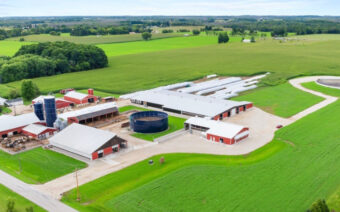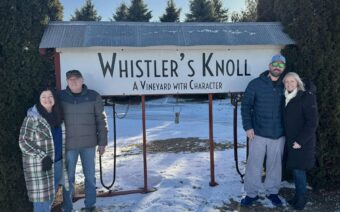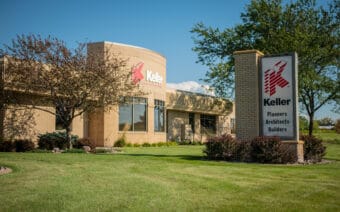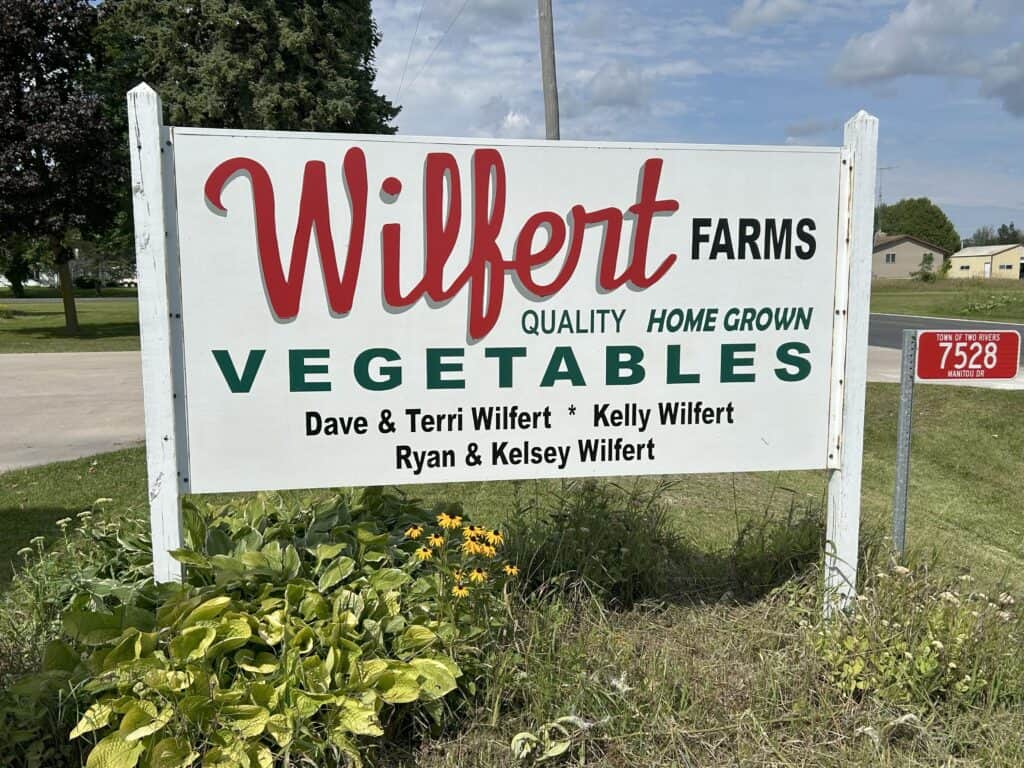
September 8, 2025
TWO RIVERS – According to the American Farm Bureau Federation, the American agricultural landscape changed forever during the 1980s.
Crushing debt, collapsing land values and unstable markets – per the federation – forced hundreds of thousands of family farms to shut down.
Dave Wilfert said his family’s farm, located near Two Rivers – Wilfert Farms – nearly became part of that statistic.
From crisis to carrots
The farm had just celebrated its 100-year milestone in 1977, but that same year, Dave said his father, Robert Wilfert – the third-generation owner – was diagnosed with a brain tumor and could no longer run the farm.
Dave said he and his brother Bill returned home to help their mom, Shirley – who had to liquidate the cows and transition to a grains-only operation.
Working as a sales manager for a marketing firm at the time, Dave said his return to the farm eventually became permanent.
With the dairy side of the business shuttered, Dave said he and Bill looked for new ways to keep the farm viable – adding custom farming services like crop combining (wheat, corn and soybeans) to bring in additional income.
He said they also added custom insecticide, fungicide and herbicide application capabilities to their portfolio of services, while tending to their own 400 acres.
Dave said the farm was growing and modernizing with new grain storage and drying facilities.
Then, he said, the early 1980s happened.
“Jimmy Carter, the president at the time, put an embargo on grain going to Russia,” he said, “but it ended up cutting off a lot of the good money that was in the grain business. Grain prices plummeted, and U.S. grain production needed to plummet because there was no place to go with it.”
Dave said the global grain glut got so bad that the government paid farmers not to cultivate certain acres, using surplus crops to shrink the market and lift prices.
However, Dave said his family didn’t want the government’s help and instead forged their own path.
“As a marketing major and economics minor in college, I did what the market told me to do, and I went in a different direction,” he said. “We knew we needed to do something different – and that something was carrots.”
Dave said the new direction proved to be a good one, with Wilfert Farms eventually becoming one of the largest carrot producers in the state, with its carrots sold worldwide via major food processors such as Agri Link and Manitowoc-headquartered Lakeside Foods.
Terri, Dave’s wife, said the farm’s carrots were sold under several different brand names in grocery stores.
“Lakeside Foods is a private-label distributor, meaning they’ll label foods specific to buyers, whether it’s Roundy’s, Shurfine or other store brands,” she said.
Dave said when Wilfert Farms entered the carrot business, “there were 34 growers in the State of Wisconsin.”
“We were the only ones growing carrots on highland sand at the time,” he said. “The rest of the carrots were grown on drained wetlands or muck soils. We thought we could produce better carrots with our soil, and the processors concluded that we were producing better-quality carrots.”
Supplying 5% of Wisconsin’s total carrot harvest, the Wilferts said their family farm made a remarkable impact in the state’s agricultural market.
Dave said another pivotal decision regarding the farm’s success was made in 1988, when the family decided to irrigate their 40-acre peas-in-the-pod crop.
That year brought a harsh drought, and with few Wisconsin growers using irrigation at that time, Dave said his family found themselves at an advantage.
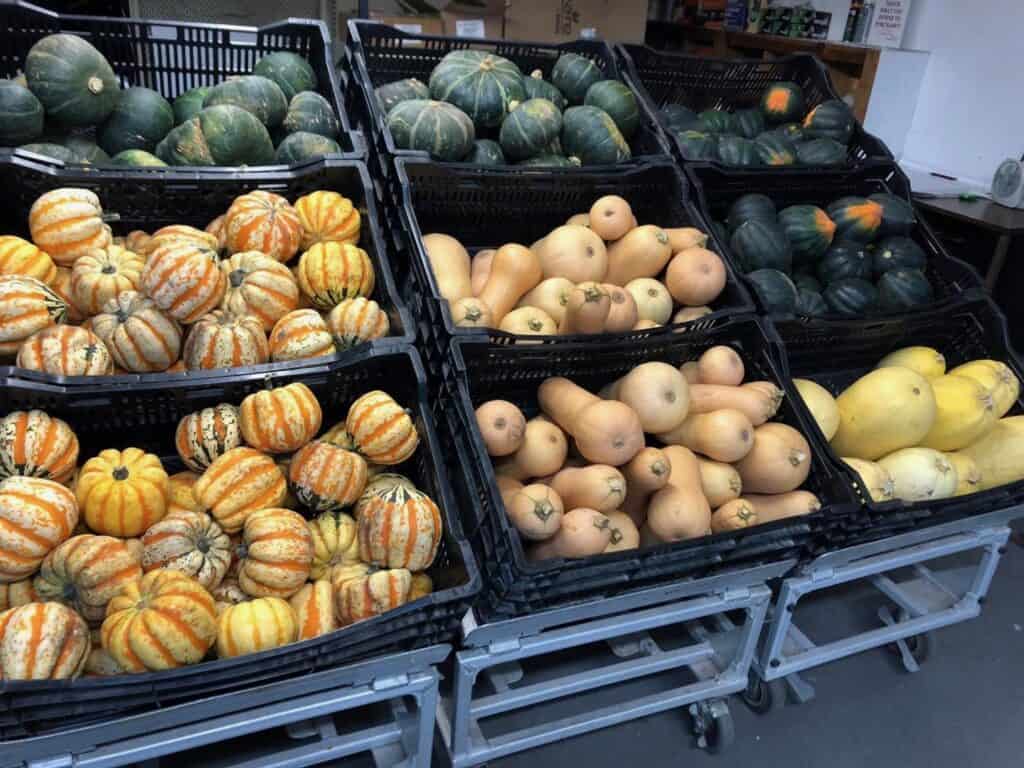
“So, we had peas when no one else did, and it was a very good crop,” he said. “We started hand-harvesting the peas and retailing them to local customers, along with a few acres of asparagus we had. And this was the start of our fresh market business.”
That same year, Dave said the family opened an on-site market where nearly all of the farm’s fresh produce is sold direct-to-consumer.
Dave said they expanded the market in 2004 and added a walk-in cooler, which was the same year Wilfert Farms started growing strawberries.
After peas and asparagus, he said, came several other vegetables such as cucumbers, potatoes, zucchini, onions, peppers, broccoli, cauliflower, squash, kraut cabbage and tomatoes and other fruits such as cantaloupe and watermelon.
Wilfert Farms, Dave said, now grows more than 30 kinds of fruits and vegetables – from “A’sparagus to Z’uchini,” as the family likes to say – while continuing to grow corn, wheat and soybeans.
“We want to be good stewards of the land,” Dave said, “and part of that is rotating crops, so we rotate the row crops with our vegetables.”
Dave said produce availability is updated online daily.
Dave said he credits the farm’s success to diligent effort and innovative problem-solving strategies.
“We actually ended up building our own equipment, so although I’m not a machinist or welder by trade, I taught myself both,” he said. “In the early ’80s, I bought a milling machine and built the machine we needed for harvesting our first carrot crops.”
In 2022, Dave said the family began scaling back carrot production as the market became less profitable.
“We were getting so involved with the fresh market business that we didn’t have enough people to go in all these different directions,” he said. “So, we decided to stay in the fresh market business where we control the pricing.”
The variety has grown over the years, Dave said, often in response to customer requests.
“We were hearing ‘you should grow sweet corn or you should try pumpkins,’ but it’s been a gradual growth over the last 40 years, with larger plantings taking place each year,” he said.
Growing variety
Dave said the top priority at Wilfert Farms has always been delivering the highest quality.
That’s why, he said, they never pursued big distribution deals.
“We’ve been approached by distributors to do large amounts of product per distributor, but we always stay away from that,” he said. “We want to be the ones who harvest it and sell it to the people who are going to eat it.”
The rise of the “eat fresh, eat local” trend has helped drive customer loyalty, Dave said, as more people seek out locally grown, farm-direct produce.
“Our peas in the pod have always been the thing everybody just clamors for…,” he said. “We have one customer who has ordered 10 pounds, 15 pounds, for shipment overnight to Arizona a few times a year. So, we know we’ve got a pretty good product. We’ve had a customer in California doing the same thing.”
Dave said Wilfert Farms’ sweet corn has also become “renowned around Wisconsin as being the best.”
“We think this is due to how we handle and select our varieties,” he said.
Shifting consumer preferences, Dave said, have expanded the farm’s variety of produce, with kohlrabi seeing a notable rise in demand in recent years.
After years of major shifts, Dave said the Wilfert family is proud of the fresh produce operation’s achievements.
“I think we expected it to be successful,” he said. “I mean, it’s just the kind of people we are. We have three high school valedictorians in our family and a ton of college degrees. We brainstormed all those years ago, knowing we had to do something different than everybody else and their brother.”
Terri said she’s “always kind of amazed” by what Wilfert Farms has grown into.
“I have a dairy science degree from the University of Wisconsin-Madison, because I grew up on a dairy farm,” she said. “I never imagined that I’d be raising vegetables for a living.”
Terri said the market sees more than 1,000 visitors on some days, with tens of thousands coming annually and more than 20,000 followers on the farm’s Facebook page.
She said Dave affectionately describes the community Wilfert Farms has cultivated as “the ‘Cheers’ of the vegetable industry.”
“I had a customer here two weeks ago telling me how he used to come here with his grandparents and parents, and now ‘I’m bringing my kids here,’” she said. “So, we have multiple generations of families coming over the years.”
This time of year, Dave said the farm’s pumpkin patch is a major draw for both families and large groups eager for the harvest experience.
But produce, he said, isn’t the only thing on the market’s shelves.
“I have a couple of nephews who run a small feed farm – Fictum Acres – with 150, 200 head of cattle, and their packer in Green Bay shut down during COVID-19,” he said. “So, we pivoted quickly, got certified and sell their beef products [at the market] to this day.”
With customer traffic continuing to grow, Dave said the family hopes to one day open a larger market – with more parking and space for other local vendors to sell their products.
Meanwhile, Dave said the next generation of Wilferts is working alongside him and Terri, ensuring the farm’s future.
“My son Ryan is taking over the operation,” he said. “He’s been our equipment buyer since he was 16. For 20 years, he’s focused on row crop care and the agronomy stuff, allowing us to prioritize the business side.”
With technology assuming a more dominant role in agriculture, Dave said, Ryan, now 32, has also taken the lead on integrating new systems to improve the farm’s efficiency.
Dave said it’s an important development for farms like Wilferts, which manages 30 crops and multiple plantings per crop every year.
Automated steering was one of the first big leaps in modern farm technology, hitting the scene in the early 2000s, which Ryan said he helped bring to the farm when he was just 12 years old.
“It allows for parallel tracking, which basically lets you follow a straight line on a GPS screen, instead of looking behind you and trying to figure out where you are,” he said. “Since then, we’ve added self-driving tractors with the same technology.
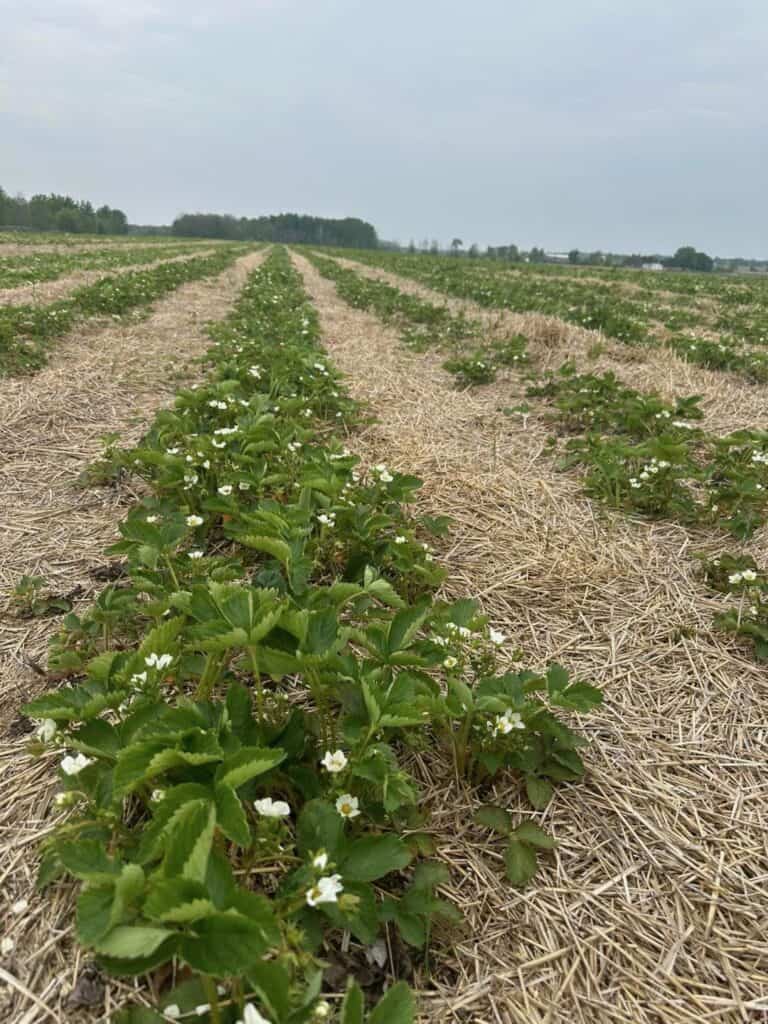
For Wilfert Farms, Ryan said success comes from staggered plantings – putting in new crops every few days
“So, I can plant three acres on a 40-acre field, leave that field for three days, come back and pull right back to exactly where I left off, selecting the same GPS line,” he said. “I don’t even have to drive the tractor, because it knows exactly where to go.”
Advancements, like precision crop treatment and modern irrigation technology, Ryan said, have helped the farm operate more efficiently with fewer labor hours.
“Last year, we installed four center pivots for irrigating some of our drier parcels, which I can control through my phone,” he said. “I can start and stop the pivots, monitor them for pressure and gallon output or inches of precipitation, speed them up, slow them down or change direction.”
From a conservation standpoint, Ryan said, “it’s far better,” because water is used more efficiently.
“Also, we used to spend a lot of man hours moving sprinkler lines, irrigation pipes and everything else needed to facilitate applying water to these fields,” he said.
In addition to adopting technology that improves efficiency, Dave said the farm’s shift into fresh fruit and vegetable marketing has brought new priorities.
“We’ve been Manitowoc Chamber of Commerce members for several years,” he said. “I was a board member for two-and-a-half years. When we first started the market, the chamber really supported us. We had a Business After Hours event where like 80-90 people came. The support we got from chamber members has really been a big part of what has helped propel us to where we are today.”
Furthermore, Dave said Wilfert Farms stays engaged with the local community by supporting area food pantries with donations of fresh produce.
Dave said the farm appears set for many more years as a family affair with Ryan and his wife, Kelsey – who is also a registered nurse at Aurora Hospital in Two Rivers – helping to run equipment and oversee operations.
Dave said his daughter, Kelly, an agricultural attorney and farm law outreach specialist with the University of Wisconsin-Madison Extension in Sheboygan County, “still helps out when we’re in a pinch.”
“Then there’s my four-and-a-half-year-old grandson, Ryan’s son, who talks to me at the end of almost every day,” he said. “He lays out for me what I need to do the next day. And the funny thing is – he’s usually pretty close to right.”
For more on Wilfert Farms, find it on Facebook.
 Encore: Music U reopens on Green Bay’s east side
Encore: Music U reopens on Green Bay’s east side Dairy Strong Conference returning to Titletown Jan. 15-16
Dairy Strong Conference returning to Titletown Jan. 15-16


